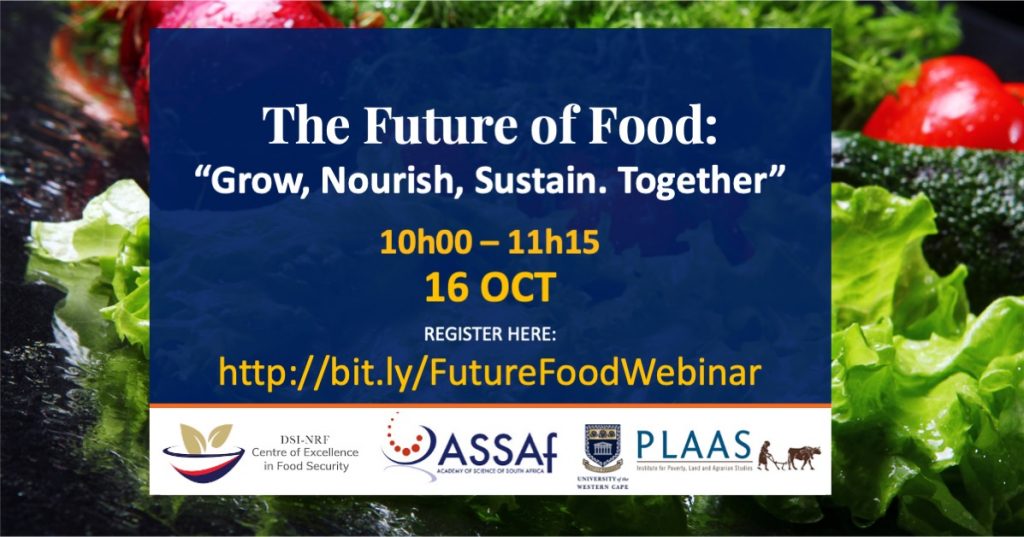CLICK TO REGISTER
In South Africa, the evidence of persistent inequality, poverty and unsustainable models of development are visible in the interrelated spheres of social justice, climate justice and in a range of challenges concerning water, energy and food security.
These challenges have been exacerbated by the COVID-19 pandemic, which, according to the FAO, “threatens to reverse important gains in food security, nutrition.” And the destructive impact of the global health and economic pandemic laid bare the fragility of South Africa’s social structures, leaving those already living from hand to mouth unable to feed themselves or their families.
An overarching crisis, however, is that of climate change, which the country’s foremost climate scientists warn will have long-term and far-reaching consequences for the southern African region.
Given the context above, on World Food Day, the DSI-NRF Centre of Excellence in Food Security, in partnership with Academy of Science of South Africa and the Institute for Poverty, Land and Agrarian Studies brings together a panel of experts to discuss two key questions:
- Given the disturbing prognosis of the impacts of global warming on ‘the future of food’ here in the southern African region, what are the strategic positions, recommendations and urgent actions proposed by scientists, science bodies and policy-makers in the promotion of responsible transitions to transformational adaptations?
- With the deep societal inequalities exposed by the pandemic, which opportunities are apparent in meeting both the adaptation targets as well as the principles of a just and sustainable social compact which President Ramaphosa has consistently mentioned but not delineated?
Presenters:
Prof Himla Soodyall, Executive Officer, the Academy of Sciences of South Africa
Dr Admire Nyamwanza, Research Specialist, the Human Sciences Research Council
Kurt Ackermann, South African Urban Food and Farming Trust
Facilitator:
Mr Robert Kriger, Independent Consultant
Upcoming Events
Our GOALS
We recognise that producers, processors, distributors and consumers are incorporated into the food system under varying terms and returns. We also recognise the economic, social, human and environmental health impacts associated with food security. Therefore our goal is to conduct research, build capacity and disseminate findings that will promote a sustainable food system in South Africa.
Our MISSION
Our research is concerned with the scale, nature, causes and consequences of food insecurity in South Africa and elsewhere on the African continent. Thus our mission is to investigate products, technologies, processes and policies that can reduce food insecurity and mitigate its negative outcomes. We seek to make a difference to food security by linking innovative science with critical enquiry.




